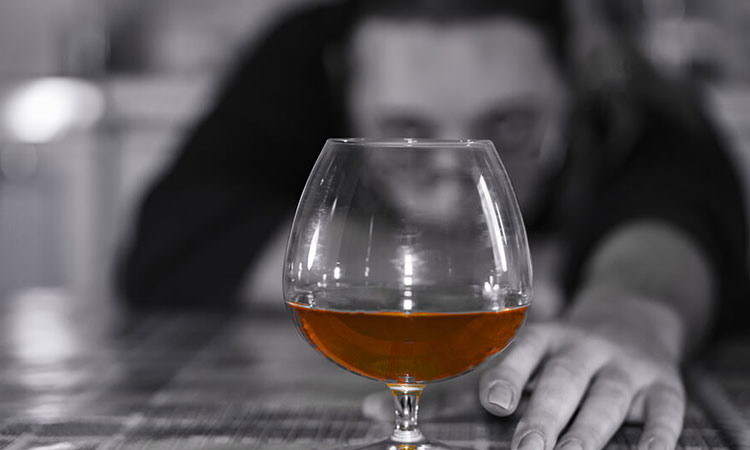
Detox is the process of removing toxins, including alcohol, from the body. During this time, people with alcohol dependence may suffer from a variety of unpleasant and potentially life-threatening symptoms.
For people with mild-moderate alcoholism, withdrawal symptoms may onset within a few hours after the last drink and can last between 5-7 days. For persons with severe alcoholism, withdrawal effects may not completely resolve for two weeks or more.
The duration of alcohol detox depends on several factors, including the severity of a person’s alcohol addiction. The more intense the substance use disorder is, the longer detox may take.
Alcohol Withdrawal Side Effects
Withdrawal can be broken down into three separate stages of severity:
It takes about 6-12 hours for the first stage of alcohol withdrawal symptoms to begin and is often hallmarked by symptoms such as agitation, anxiety, headaches, shakiness, nausea, and vomiting.
Between 24-72 hours, symptoms peak, and stage 2 symptoms can rapidly onset and include disorientation, increased blood pressure and body temperature, and irregular heart rate. Stage 3 symptoms also manifest during this time and in severe cases, may include hallucinations, fever, and seizures.
Symptoms may start to subside between 5-7 days and gradually diminish in intensity. After the first week, some of the side effects, particularly those that are psychoemotional, may continue for several weeks unless properly addressed. When these symptoms persist, the condition is referred to as post-acute withdrawal syndrome (PAWS).

Professional Detox
Alcohol rehab offers a safe, comfortable place for people to undergo detox. Trained medical professionals can administer medication-assisted therapy to relieve the most painful and dangerous withdrawal symptoms, thus expediting the detox process.
During detox, the first phase is to monitor and control the physical symptoms until the patient’s system is relatively stable. This step is often accomplished through the administration of medications to treat symptoms such as nausea, dehydration, seizures, and insomnia. Benzodiazepines like Ativan are commonly used during alcohol withdrawal to reduce overactivity in the central nervous system that can occur as it attempts to restore equilibrium.
Heart rate, blood pressure, respiration, and body temperature should all be closely monitored, and measures should be taken to ensure that they stay within safe levels. Those dependent on alcohol also frequently suffer from malnutrition. As such, a healthy diet with supplemental support and a dedicated sleep schedule may mitigate some of the withdrawal effects and help the body heal faster.
In summary, a medical detox program provides the most comprehensive and supportive environment during all stages of alcohol withdrawal.
Detox from Severe Alcohol Addiction
For those people suffering from especially severe alcoholism, detox can take longer. Chronic alcoholics may experience a condition known as delirium tremens (DTs) when they stop drinking abruptly. DTs is a collection of severe alcohol withdrawal symptoms, including extreme confusion, hallucinations, and tremors. This condition often affects individuals with late- or end-stage alcoholism.
Fortunately, DTs is a relatively rare condition. According to research, about 3-5% of people hospitalized for alcohol withdrawal will develop delirium tremens. A small percentage of those will die due to complications, but fatality is more likely when the person does not receive medical treatment.
DTs may not start for one or two days after alcohol is eliminated from the bloodstream, and can occur without warning. For this reason, alcohol withdrawal should be closely supervised by a healthcare professional who can continually monitor vital signs and ensure the client’s safety during the detox process. Stopping one’s drinking abruptly —or “cold turkey”—is never recommended without clinical supervision.
Factors That Affect Alcohol Withdrawal Duration
The alcohol withdrawal timeline is influenced by several factors, such as the severity of alcohol dependence and addiction, medical history, presence of a co-occurring mental health condition, stress levels, and a family history of addiction or childhood trauma. The use of other drugs, in addition to alcohol, can also affect withdrawal and increase the potential risks and side effects.
The more alcohol-dependent a person has become, the more likely the person is to encounter severe withdrawal symptoms. Therefore, many people without extremely severe addictions will not go through every stage of withdrawal (e.g., delirium tremens). A person’s tolerance to alcohol and the intensity of his or her addiction are two of the greatest factors that determine the length of time it takes to detox.
Other factors that influence how long alcohol detox lasts include the following:
Addiction Treatment

After completing detox, people with alcohol dependence should enter a comprehensive treatment program. Here, individuals can work on changing their feelings toward alcohol, manage their cravings, and find more effective ways of coping with stress.
Once the physical symptoms are under control, mental health professionals who specialize in substance abuse treatment can help people reduce some of the more powerful emotional symptoms associated with withdrawal. Anxiety, depression, and suicidal ideations are all possible outcomes that can be managed by medications coupled with psychotherapy, counseling, and other treatments and forms of support.
Preventing relapse is also an essential part of any alcohol detox and treatment program, and 12-step groups and individual therapy can provide continued support throughout recovery, into aftercare, and beyond. To help prevent relapse, detox centers may prescribe one or more of the following FDA-approved medications to help reduce alcohol-related cravings: disulfiram, naltrexone, and acamprosate. These medications work in various ways to manage withdrawal symptoms and discourage those in recovery from drinking again.
Getting Help for Alcoholism
As noted, detoxing from alcohol should not be done at home. Medical detox is usually necessary to prevent relapse and ensure the person’s safety as their body endures the withdrawal process, which in some cases can be life-threatening.
Midwood Addiction Treatment is a specialized rehab center that offers outpatient detox services as well as comprehensive treatment in partial-hospitalization and outpatient formats. We also employ medication-assisted therapy as a part of our detox and recovery process.
Research has shown that psychotherapy and counseling, in addition to group support and other therapies, are vital for recovery, and those patient outcomes are significantly improved when they receive these services. Our staff of highly-skilled addiction professionals is trained to deliver treatment to clients with compassion and expertise. We are dedicated to providing them with all the tools they need to achieve a full recovery.
If you or someone you love is suffering from alcohol addiction, please do not go through it alone. From detox to aftercare, we help people free themselves from the grip of addiction and foster the healthy and satisfying lives they deserve! Contact us today to discover how!